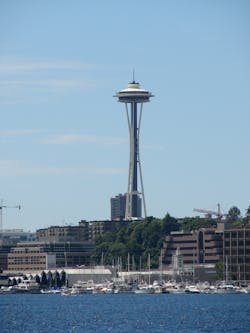Seattle, King County, Wash., to Upgrade Combined Storm Water Systems
King County and the city of Seattle have agreed to invest in major upgrades to local sewage and combined storm water collection, piping and treatment under settlements with the Department of Justice and the U.S Environmental Protection Agency (EPA). The state of Washington was a co-plaintiff and partner in these settlements.
The agreements are the result of extensive federal and state government cooperation and pave the way for employing more “green infrastructure” projects like green roofs, permeable pavements and urban runoff gardens, which help reduce demands on local sewer and storm water systems.
Both agreements allow the city and county to use an integrated planning approach, which encourages communities to set their own clean water project priorities and invest in fixing the most pressing problems first. The settlements also require King County and Seattle to develop and implement a joint plan to improve system-wide operations and maintenance, since Seattle conveys the combined sewage it collects to King County’s system for treatment prior to discharge.
Under the terms of the county settlement, King County will implement a long-term plan for controlling sewer overflows. By implementing these measures, King County will reduce its raw sewage discharges by approximately 95 to 99%, better protecting Puget Sound, Lake Washington and the Duwamish River from sewage-laced overflows. The improvements and upgrades are expected to cost approximately $860 million. In addition, King County will pay a civil penalty of $400,000.
The agreement allows the county to substitute green infrastructure projects, like green roofs, permeable pavements and urban gardens, which help reduce the demands on Under the settlement with the city of Seattle, the city will develop and implement a long-term plan for better controlling sewer overflows and improve system-wide operations and maintenance. The city will also implement plans to control fats, oils, and greases, and reduce debris being discharged by the system. In addition, the settlement provides Seattle with the opportunity to also use an integrated planning approach and to substitute green infrastructure at several of its sewer overflow control projects. By implementing these measures, the city will reduce its raw sewage discharges by approximately 99% at an estimated cost of $600 million. Seattle will also pay a civil penalty of $350,000.
The settlement is subject to a 30-day public comment period and approval by the federal court.
Click here for more information about the settlement.
Source: EPA
